The hamlet is located right at the famous roundabout of this land. The famous coffee shop throughout the city makes the small hamlet always bustling. More than half a century ago, Dau's grandfather moved here from Binh Duong , hiding from the luxurious city after the raid on the pottery kiln hamlet. That's how the coffee shop was built to earn a living. Coffee is cooked on a stove with a low fire, that is the way Dau left for his grandfather from the old days. The coffee shop has been around since the time of the wooden stools, through the changes of the land, to feed Dau's father and then Dau.
ILLUSTRATION: Van Nguyen
At five in the morning, Dau set up shop, and only half an hour later the water was boiling, the coffee was stewed, and the tea was filtered. Anyone who came could sell. At six in the morning, the newspaper delivery man, carrying a swallow-winged cup from the 80s of the last century, slowly arrived. Newspapers and morning coffee were two indispensable things for the citizens of this land. The old men and women did not bother to quickly scroll through their phones to check the news. It had to be a paper newspaper. In this shabby coffee shop, paper newspapers were still fought over to be read, and one day a man read aloud to a dozen men sitting around talking. East, West, South, North, they discussed everything like experts. From crossroads, to small alleys, to other people's houses, they knew six verses of vọng cổ.
It was April now, the city was bustling with stories of military parades, marches and cannon firing to celebrate a big holiday. The holiday from the city center had been spreading to the small neighborhood for the past few days. Just yesterday afternoon, when cleaning the shop, Dau heard some old men reminding each other to buy paint. Dau bent down to stack the chairs neatly, wondering in his heart: Whose house is repainting that, Uncle Binh? The old man with white hair smiled wickedly, saying, why ask, we'll know tomorrow.
So today Dau waited for the old men to come, the sun was shining, but there was no sign of them. The shop lacked old men like Saigon in the morning, but there was no bread. While sitting cross-legged reading the news of the rehearsal day outside the center, the old men came. Coffee, milk coffee, hot milk... The familiar calls filled the small space of the neighborhood. Some people held brushes, others carried paint. Dau was taken aback, before he could ask anything, he saw a few more old men holding rulers and flags. What were they going to do next?
Dau wondered, because there were some old men in the small hamlet who were idle, meaning they were retired, so they often had free time to set up things. So much so that their wives and children would occasionally run from their houses to the coffee shop at the end of the alley to ask. Unfortunately, Dau could not control the old men's legs, so many times when they gathered together to hang out in the world , when they got home, afraid that their wives and children would scold them, they would point out Dau's coffee shop. Many times, Dau was like an accomplice, knowing but hiding. But, in reality, Dau did not know anything. He only knew that the old men from all directions had gathered in this small hamlet after that spring. The last battle in Saigon was the battle that brought the old men to the roundabout ahead. Then, as if it were part of fate, the old men chose this small hamlet to settle their lives for nearly half a century.
The residential area of the soldiers at that time was still dilapidated, lacking electricity and water, and the plowed roads were all broken. The area now has smooth asphalt roads, tall and spacious houses, and colorful flowers. Occasionally, when he had free time, Dau would listen to the old men tell old stories. Stories from decades ago that they remembered clearly. After telling them over and over again, Dau knew them by heart. So, depending on the season, when they brought up old stories to warm up their lives, Dau would put a chair next to them, and from time to time, he would remind them. Sometimes last year they would miss a part, and the next year they would add more. It wasn't that they had forgotten, it was because they told them in quick succession so that each year they would have something to tell. They told and argued. Like remembering wrongly, remembering incorrectly. This man argued with that man. They argued and laughed. Laughed at the old stories that were so passionate when they recalled them, like when they were eighteen or twenty, carrying guns and running to Truong Son. Laughed and cried. Cried heartily. Tears welled up in their eyes. Their bodies trembled. Those were the April days when the echoes of the final battle echoed through the streets of Saigon.
***
Dad said that day he didn't know why he chose this small hamlet as his place to stay. He only knew that there were days when grandma followed the fabric trucks from Bay Hien crossroads all the way to Hoc Mon, Cu Chi, and then all the way to Tay Ninh to sell. There were also days when grandpa went to deliver newspapers all day long, all the way to the airport. At that time, the shop was so poor, he just left it there for dad Dau to watch. Just like that, dad Dau, at the age of fifteen, already knew how to make coffee, silver coffee, or salted lemonade. In the months before the war, grandpa and grandma were gone forever. Everyone in the small hamlet packed up and ran. Ran in panic. Ran to the airport. Ran to the Bach Dang River. Ran to the downtown area to find a high-rise building with a helicopter to climb into. Ran in trepidation. Worried steps. Confused steps. Only dad Dau still opened the coffee shop to sell. Sometimes grandpa would run by. He didn't go anywhere. This was his home. This land was his homeland. Liberation in the mind of a fifteen-year-old boy meant no more cannons to lull him to sleep. No more flares to light up the city. Liberation meant not hearing the sobbing of mothers whose children had died in battle. Liberation meant selling tea in peace. Or even being able to renew his papers to go to school. So, Dau’s father did not run. That afternoon, he beckoned some soldiers to give him coffee and soft drinks for free. Grandma did not scold Dau’s father, she just whispered something to the soldiers. Then they smoked together, laughed together, shook hands and happily chatted.
Much later, when his grandmother passed away, Dau saw many old friends from the West and then the East coming to visit, and he realized that the conversation at the tea table was about his grandmother and the long-distance liaison trips to deliver news from the inner city of Saigon to the Central Office of the South. His grandfather was also a liaison, but in charge of the short route, responsible for collecting news from the General Staff located at the Tan Son Nhut airport defense area at that time. The memories of the courageous years were told to each other by the old veterans. They were also told to the grandchildren gathered around to understand the life of the liaison couple who had drifted from Lai Thieu pottery village to anchoring at Lang Cha Ca roundabout.
Dau started growing up with the April stories of his grandfather and the old war veterans in the small hamlet. Long after that, Dau still often sat from the family coffee shop looking out at the roundabout and imagining. The vicissitudes of life changed so that the roundabout of the past is now a large intersection, but the small hamlet still has the memory of the last battle at the Northwest gateway of Saigon.
The troops marched here on the morning of April 30 and encountered resistance from the General Staff and the support of a few 81st Airborne Rangers. Luckily, the E24 wing was assigned to the inner city to attack from Vo Tanh Street, then sneaked into the alleys to reach the military area, so they completely occupied the airport and the General Staff. However, at that moment of unification, dozens of soldiers of the 273rd Tank Regiment fell at this roundabout. Death in the midst of peace caused indescribable pain to those who stayed behind. So, when they were mobilized to stay and rebuild, the soldiers chose the hamlet where the liaison officer showed them the way as their place of residence. The temporary residence seemed like a short period of life, but in retrospect it was a whole life. Getting married, having children, and then grandchildren were born. The small hamlet always held the fate of the old men who passed by. Those who were still alive gathered for coffee in the morning, those who died returned to their hometowns. The whole neighborhood has a common death anniversary, which is the day comrade E24 died at that spring roundabout.
Dau often calls the old men the April storytellers since he learned about the origin of this small hamlet with green military uniforms.
***
Now the old men were painting the walls, the walls in the small hamlet were suddenly dyed red and had five-pointed yellow stars. The old men were sweating profusely in the hot weather of April. Dau made a big mug of iced tea and placed it right where the old men were painting. He smiled brightly and asked who had come up with such a great idea. The old men laughed, who, the other day I saw on TV that a hamlet near Ban Co market was painted so beautifully. It was so bright and pleasing to the eye. So we went knocking on every door to ask for paint. Unexpectedly, everyone agreed, and even gave us money to buy paint. This time our hamlet will have the biggest holiday in the country. Dau laughed happily. That's it, I'll sponsor free water, let's go to the coffee shop to get something to drink. It only happens once every fifty years, bread doesn't come every day. Let's have fun until Bach Dang wharf, guys.
Dau is over thirty years old, which means that when Dau was born, he had enjoyed peace on this land. The picture of wartime with dark and light colors that Dau has in his mind comes from the pieces in the memories of his old men, his grandfather, and his father. When Dau quit his job after the company's downsizing during the recent pandemic, his father asked him if he would sell the coffee shop. His father was afraid that the young people nowadays would just like to sit in air conditioning, wear shirts, pack boxes, and go into buildings to work. That would be very luxurious. Selling coffee on the street is rustic, dull, and not luxurious. Dau looked at his father's hair, which was more than half white, his back starting to bend. Dau looked at his mother's limping figure every time she set up shop. Dau's eyes welled up with tears. That small coffee shop had passed through the life of his grandparents during the chaos, carrying the burden of their children for years. And then, of those five children, only Dad chose to inherit the trick of drying coffee on the stove to make the coffee thick and sticky, making everyone who passed by this neighborhood fall in love. This coffee shop also helped Mom and Dad raise three children to be successful in their studies. Now, the siblings have their own families and proper homes, only Dau is still in this small neighborhood with Mom and Dad. If not Dau, then who?
Dau couldn't think much, Dau knew that this coffee brewed in a strainer and stored over a fire, Saigon probably no longer sells it. But, somewhere in this city, there are still people who miss the old taste and come to drink it. Just like the veterans who always choose the shop as a place to gather and meet friends. So, Dau nodded, Dau challenged himself for three months to see how good his talent for selling was. Luckily, Dau learned the trade quickly, after only half a month, his parents handed it over to Dau and he became a regular customer of the shop every morning when he gathered with the old men. The only two customers who drank coffee without having to pay.
***
This year, the village's death anniversary was held early, the old men decided on a weekend morning. Everyone nodded in agreement. The death anniversary was on the 29th. The death anniversary was early so that we could go watch the parade and march. We could also go to Bach Dang to watch the cannon firing. The old men were talking excitedly. Dau turned around slightly, held out the newspaper, hey guys, look, people were coming out in droves, it was so crowded, wouldn't the old men push out and make the young people go back? Dau didn't say anything, but he was worried that the youngest old men were nearly seventy years old, and the oldest was nearly eighty years old. Calling it young is a literary way of saying it, but youth like theirs is worn out. Staying home and watching TV is the best!
Oh! I can't watch TV. That day we wore military uniforms and medals. Wherever we went, people must have given us priority. Someone insisted on going. That's how priority is given. Fifty years ago we entered, fifty years later we must be there. Back then, I never thought I would live to this point. I never dreamed that the city would have a metro. So we had to go, talk forward, not back. Or that day, you take us there, Dau. Someone said. The rest of the men spoke in unison. No need for Dau to agree or not. They talked as if it was true. We had to wake up early, we had to be neat and tidy before 5am. And we had to book the car in advance or else no one would take a dozen people out to the city center. A soldier for one day, a soldier for life. We left at exactly 5am. Anyone late would be disciplined and kicked out of the group's early morning coffee party.
That's been bustling and noisy since the beginning of the month until now, the only thing that's been stirring in the minds of the old men is the month of April. Okay, I'll take you guys along, take your time and follow me; but hey, why did you paint the whole neighborhood, leaving the coffee shop wall unpainted? If you don't paint it for me tomorrow, I won't take you that day. Dau asked and pointed behind the old men. All the time-gray heads turned around and laughed heartily. Oh, I forgot. You're so mean. We'll paint it tomorrow. Dau took the opportunity to ask for more, painting the words "April Coffee Shop" on them.
No one said anything, the old men nodded, understanding what Dau meant.
Source: https://thanhnien.vn/quan-ca-phe-thang-tu-truyen-ngan-cua-tong-phuoc-bao-185250426184739688.htm


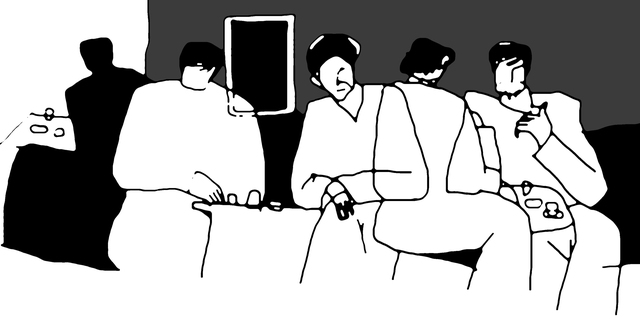








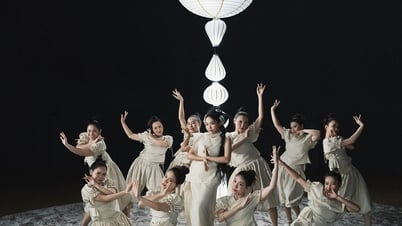


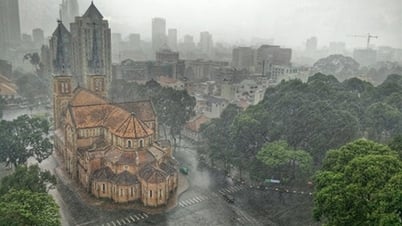

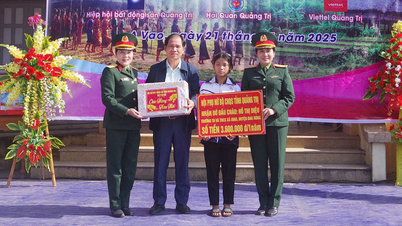





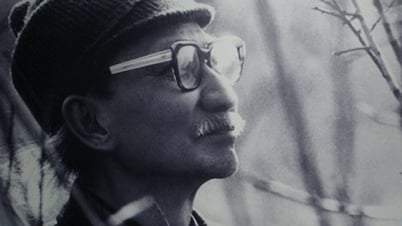
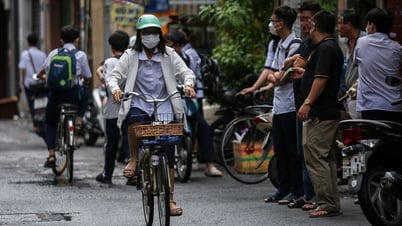
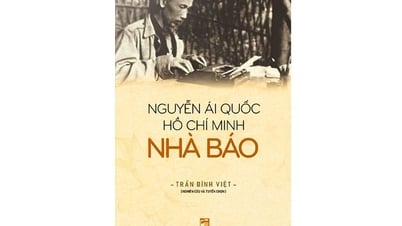




















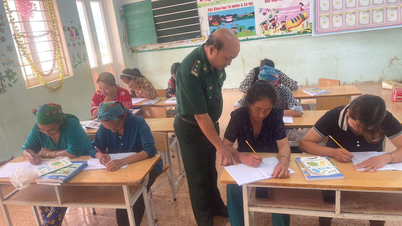







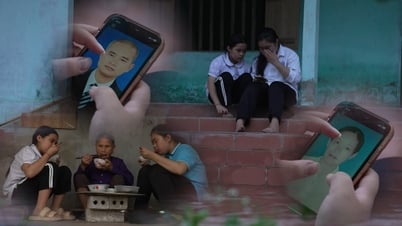







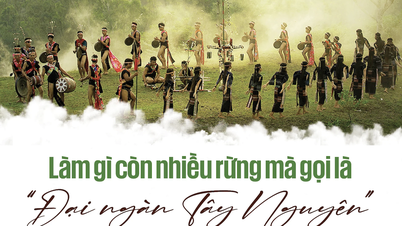
















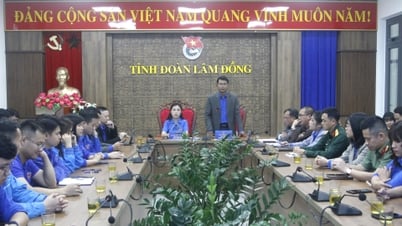



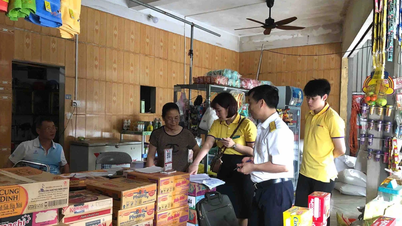













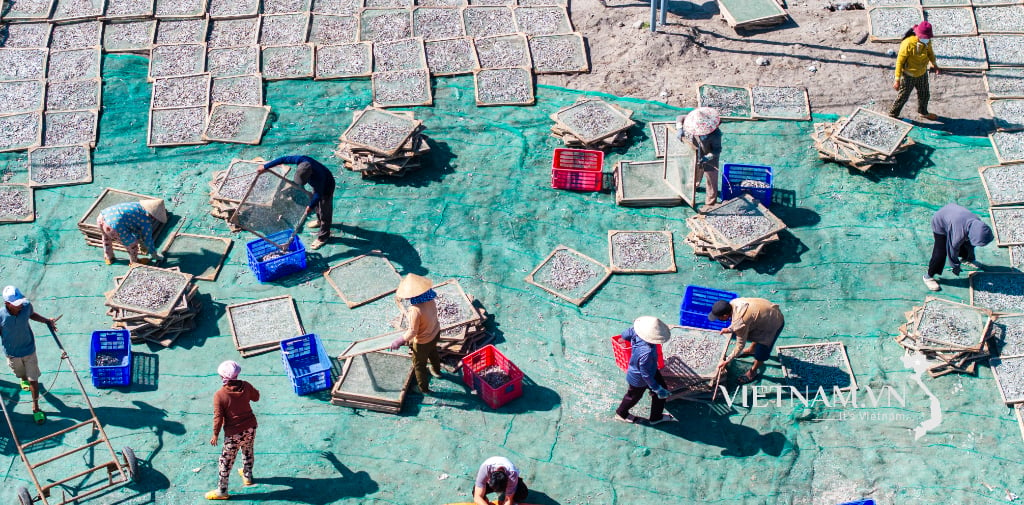
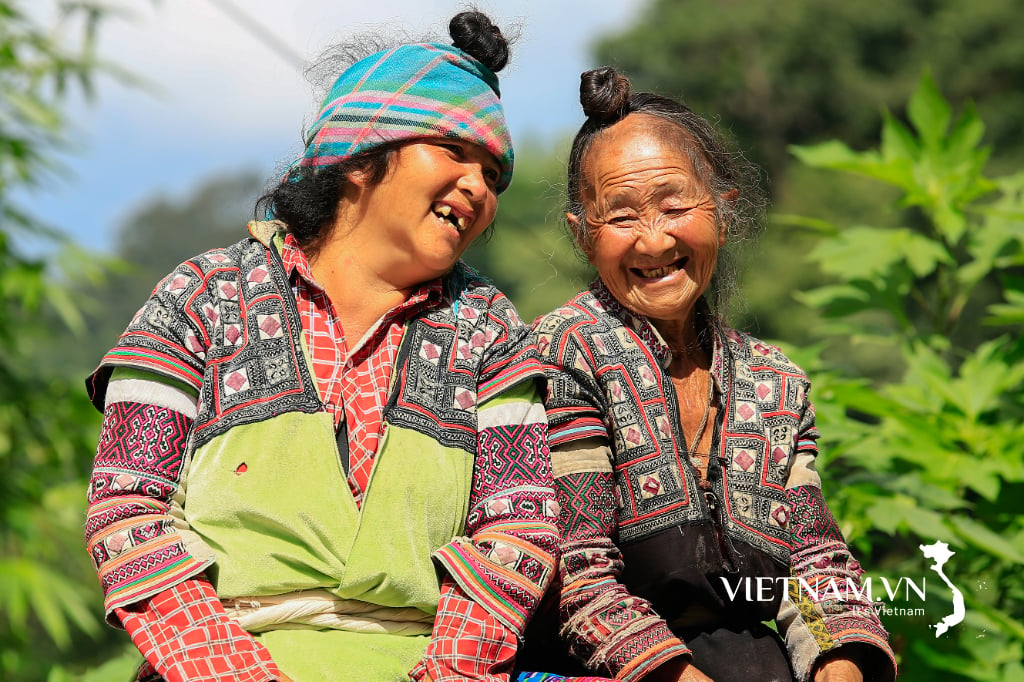
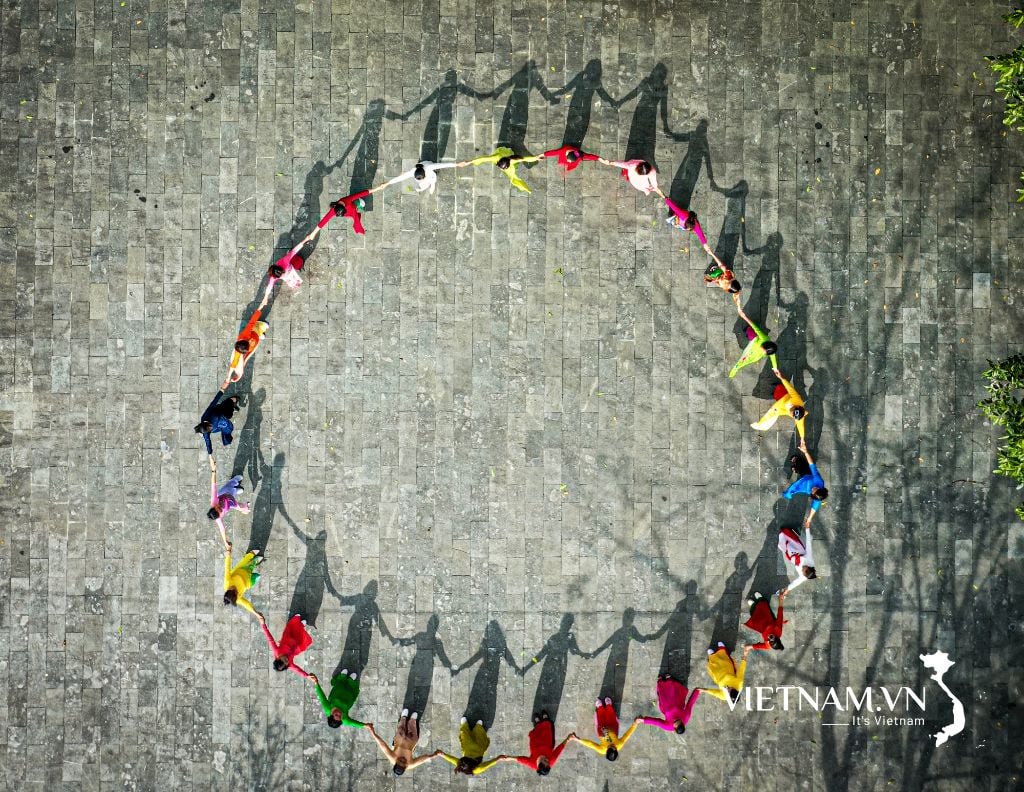
Comment (0)